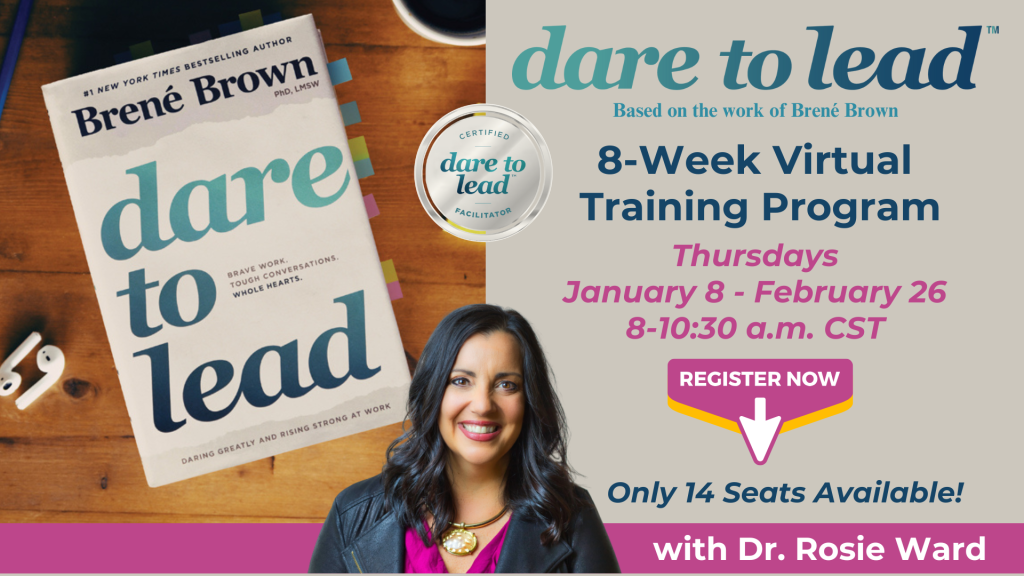Episode 22: Dr. Rosie Book Club – Think Again
Podcast: Play in new window | Download
We’re continuing with our summer format plot twist with a mini book club. In this episode I’m talking about key insights from the latest book from Adam Grant - Think Again. As someone who thrives off challenging limited thinking in myself and others, I was geeking out about this book. Adam examines the critical art of rethinking - learning to question your opinions and open other people’s minds. He describes how critical it is that we build our capability to get out of our comfort zones to rethink and unlearn and how it can position us for excellence and work and wisdom in life. I see how important this is every day with my clients, myself and as I observe the world around me. I hope you gain some useful insights from this episode and would love to hear your thoughts as you read the book yourself.
About the Book:
Think Again: The Power of Knowing What You Don’t Know
Think Again examines the critical art of rethinking: learning to question your opinions and open other people’s minds, which can position you for excellence at work and wisdom in life.
Wharton professor and bestselling author, Adam Grant, shows the shortsightedness of focusing on intelligence (i.e., the ability to think and learn). In a rapidly changing world, there’s another set of cognitive skills that might matter more: the ability to rethink and unlearn. In our daily lives, too many of us favor the comfort of conviction over the discomfort of doubt. We listen to opinions that make us feel good, instead of ideas that make us think hard. We see disagreement as a threat to our egos, rather than an opportunity to learn. We surround ourselves with people who agree with our conclusions, when we should be gravitating toward those who challenge our thought process.
The result is that our beliefs get brittle long before our bones. We think too much like preachers defending our sacred beliefs, prosecutors proving the other side wrong, and politicians campaigning for approval–and too little like scientists searching for truth. Intelligence is no cure, and it can even be a curse: being good at thinking can make us worse at rethinking. The brighter we are, the blinder to our own limitations we can become.
This book is thoroughly researched and clearly conveys the importance of rethinking. Then it provides tangible ways that we can think more like a scientist and maximize our impact in all areas of our lives.
Why this book is worth reading :
In the work I do every day in helping individuals and teams show up more courageously and effectively, I see how important unlearning and relearning is. I also personally find myself practicing this daily and rethinking things. As human beings, we are constant works in progress. And our world and knowledge is ever evolving. We must learn to be curious and be more committed to getting things right than being right – which means we have to think more like scientists.
I get that in a world that seems chaotic most of the time, it can feel more comfortable and safe to hang onto familiar views and revert to our automatic, well-learned responses (especially under times of stress). However, I’ve learned that rarely serves us well and keeps us playing small – preventing us from showing up as a leader in our lives. My copy of this book is highlighted and tabbed all over the place. As much as I think I’m curious and operate from a rethinking cycle, I definitely see where my humanity gets the best of me and I show up more like a preacher, prosecutor or politician. In fact, I’d be willing to bet the same goes for everyone who reads this book. Welcome to being human!
Adam Grant also makes some important distinctions between task and relational conflict, why confident humility is key, how to have effective conversations with people we disagree with and remove polarization and how we can embrace rethinking on both an individual and organizational level.
Points to think on while reading :
- What’s an assumption that you’ve been rethinking lately?
- Are you most likely to slip into Preacher, Prosecutor or Politician Mode? What steps can you take to think more like a scientist?
- How can you foster more task conflict without causing relational conflict? What would open up for you as a result?
- Who’s someone you normally have a hard time hearing? What would happen if you sat down with
them just to listen and try to understand their views better? - If you were going to write a letter to a younger version of yourself with lessons learned and key areas to rethink, what would you write?

About the Author:
Adam is an organizational psychologist at The Wharton School, where he has been the top-rated professor for seven straight years. His books have sold millions of copies, his TED talks have been viewed over 25 million times, and his podcast WorkLife with Adam Grant has topped the charts. His pioneering research has inspired people to rethink fundamental assumptions about motivation, generosity, and creativity. He has been recognized as one of the world’s ten most influential thinkers and Fortune’s 40 under 40, and has received distinguished scientific achievement awards from the American Psychological Association and the National Science Foundation. Find out more at adamgrant.net.
We are planning for another Ask Me Anything episode at the end of summer where I take your questions and share my thoughts. This time, YOU get to be part of the episode. Simply leave a message with your name and question for me at: 877-373-6850, extension 1.


